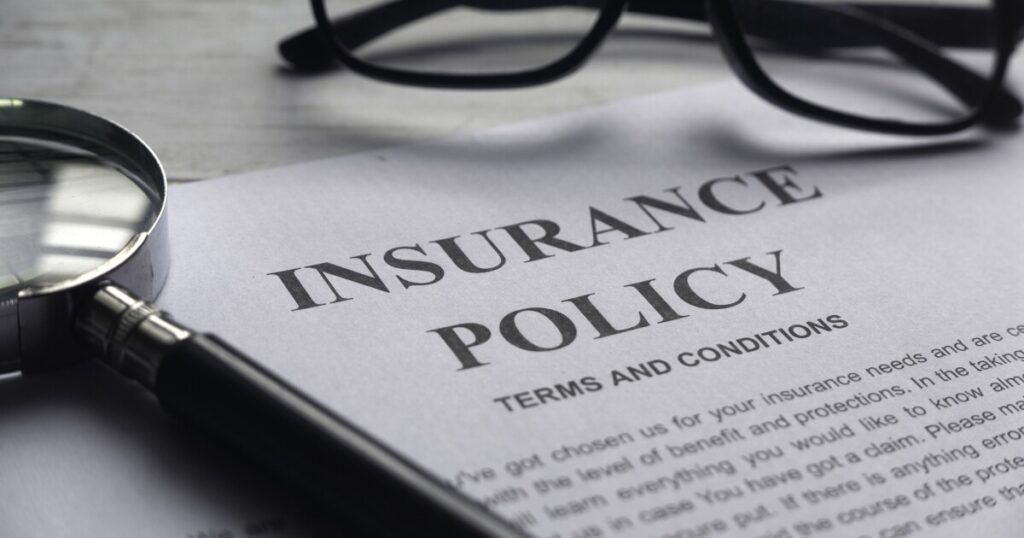Understanding Insurance: Types and Benefits
Insurance is an essential part of financial planning, providing protection and peace of mind in uncertain situations. Whether it’s health, life, auto, or home insurance, understanding the different types and their benefits can help you make informed decisions. This guide will walk you through the various types of insurance, their key features, and the advantages they offer.
1. What is Insurance?
Insurance is a contract between an individual and an insurance company in which the individual pays regular premiums in exchange for financial protection against specific risks. These risks can include events like accidents, illness, theft, or natural disasters.

- Premiums: Regular payments made by the insured to the insurer.
- Coverage: The amount of protection provided by the insurance policy.
- Claim: A request for payment based on the terms of the insurance policy after a covered event occurs.
2. Types of Insurance
There are various types of insurance policies designed to cover different aspects of life and personal property.
Life Insurance
Life insurance provides financial support to beneficiaries in the event of the policyholder’s death. It comes in two main forms:
- Term Life Insurance: Provides coverage for a specific period, usually 10-30 years.
- Whole Life Insurance: Offers lifetime coverage and includes an investment component known as cash value.
Health Insurance
Health insurance covers medical expenses, including hospital stays, doctor visits, and prescription drugs.
- Private Health Insurance: Purchased individually or through an employer.
- Public Health Insurance: Provided by government programs like Medicare and Medicaid.
Auto Insurance
Auto insurance covers damages or injuries resulting from car accidents. Policies typically include:
- Liability Coverage: Covers damages to others for which you are responsible.
- Collision Coverage: Pays for damage to your car resulting from a collision.
- Comprehensive Coverage: Covers non-collision-related damages like theft or natural disasters.
Home Insurance
Home insurance protects your home and personal belongings against risks such as fire, theft, and natural disasters.
- Property Damage: Covers repairs to the structure of your home.
- Personal Property: Protects against loss or damage to personal belongings.
- Liability Protection: Covers legal costs if someone is injured on your property.
Disability Insurance
Disability insurance provides income replacement if you are unable to work due to illness or injury.
- Short-Term Disability: Covers a portion of your income for a few months.
- Long-Term Disability: Provides coverage for a longer period, potentially until retirement age.

3. Key Benefits of Insurance
Insurance offers several significant benefits, making it a crucial part of financial planning.
Financial Protection
Insurance provides financial protection against unexpected events, ensuring that you don’t have to bear the full cost of damages or losses. This is particularly important in cases of serious accidents, illnesses, or natural disasters.
Peace of Mind
Knowing that you are protected against various risks allows you to live more confidently, without the constant worry of potential financial burdens. This peace of mind is invaluable in both personal and professional life.
Legal Compliance
Some types of insurance, like auto insurance, are legally required. Having the necessary insurance helps you stay compliant with laws and regulations, avoiding fines or legal issues.
4. How to Choose the Right Insurance Policy
Selecting the right insurance policy involves careful consideration of your needs and budget.
Assess Your Needs
Identify the risks you face and what types of coverage you need. For example, if you own a car, auto insurance is essential, while health insurance is crucial for everyone.
Compare Policies
Shop around and compare different insurance policies. Look at the coverage options, premiums, deductibles, and customer reviews to find the best value for your money.
Understand the Fine Print
Always read the policy documents carefully. Understand the terms, exclusions, and conditions to avoid surprises when you need to file a claim.

5. Common Myths About Insurance
There are many misconceptions about insurance that can lead to poor decision-making.
Myth 1: Young People Don’t Need Insurance
Contrary to popular belief, young people can benefit greatly from insurance. Whether it’s health insurance to cover unexpected medical costs or life insurance to protect loved ones, having coverage early on can be a smart financial move.
Myth 2: All Insurance Policies are Expensive
Not all insurance policies are costly. By shopping around and comparing options, you can find affordable policies that offer essential coverage without breaking the bank.
Conclusion
Understanding the different types of insurance and their benefits is crucial for protecting yourself and your assets. Whether it’s life, health, auto, home, or disability insurance, each type offers unique advantages that contribute to financial stability and peace of mind. By assessing your needs, comparing policies, and being aware of common myths, you can make informed decisions that ensure you and your loved ones are adequately protected.
FAQs
1. What is the difference between term life and whole life insurance?
Term life insurance provides coverage for a specific period, while whole life insurance offers lifelong coverage and includes a cash value component that grows over time.
2. Do I need insurance if I’m young and healthy?
Yes, even young and healthy individuals can benefit from insurance. Health insurance can protect against unexpected medical expenses, and life insurance can provide for loved ones in case of an untimely death.
3. How do I choose the right auto insurance coverage?
Consider factors such as your driving habits, the value of your car, and your budget. Compare different policies to find one that offers the best balance of coverage and cost.
4. Is disability insurance worth it?
Yes, disability insurance can provide a financial safety net if you are unable to work due to illness or injury, ensuring that you can maintain your income during recovery.
5. Can I change my insurance policy if my needs change?
Yes, most insurance policies allow you to make changes as your needs evolve. It’s a good idea to review your policies regularly to ensure they continue to meet your needs.
